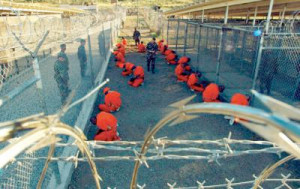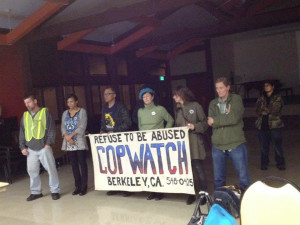Attorney; immediate past vice-president of the National Lawyers Guild, San Francisco Bay Area Chapter; instrumental in protecting undocumented persons from Berkeley civil ICR detentions.
My name is Sharon Adams. I became involved in KPFA when the Morning Mix was abruptly taken off the air, without warning during a pledge drive, and without waiting to see the financial results of the pledge drive. The Morning Mix was produced locally with a variety of hosts addressing issues of regional and national concern.
The controlling majority on the KPFA Local Station Board (LSB) supported replacing the Morning Mix with a pre-recorded production from LA, arguing the recorded production would generate more revenue. Subsequent pledge drive results have shown the LA-produced show did not increase revenue to KPFA. The station remains in difficult financial straits. But, cancelling the Morning Mix did effectively remove local voices from one of the prime drive-time listening hours.
This caused me to look more deeply into the internal issues at KPFA. I learned that KPFA and its parent, Pacifica Foundation, have amazingly bad basic accounting methods that appear to be standard operating procedure. A required audit from 2013 was only recently finalized, while the 2014 audit remains unfinished.
Things must change if KPFA is to remain a beacon of hope, and a place for alternative voices to be heard.
I was on the Board of Directors for the National Lawyers Guild-San Francisco Bay Area Chapter (NLG), from 2007 until 2014, serving as Vice-President in 2014. During that time, the economy suffered a major recession due to global capitalist economic policies. The NLG is a non-profit, membership organization, similar to Pacifica/KPFA. While on the NLG Board, we kept the NLG financially solvent through difficult times by responding appropriately and in a timely manner to the financial challenges. I will bring this type of oversight to the KPFA LSB.
Arguments have been made that KPFA must become more like NPR to remain viable, and that KPFA should receive corporate underwriting. I do not accept this model. Lewis Hill, founder of Pacifica, understood the value of the unfiltered voices of the people. Overcoming the doubters, Hill placed his faith in the power of the people, and created Pacifica. I intend to do all I can to uphold this vision.
I’m a founding member of the Coalition for a Safe Berkeley. We worked with Berkeley City Council to pass first-in-the-nation legislation protecting undocumented persons from civil ICE detention in Berkeley jails. KPFA covered this story. As a founding member of the NLG-Committee Against Torture, we worked against the US torture program, including its links to UC Berkeley Law School. KPFA covered this issue when others, including NPR, ignored it. In fact, NPR refused to use the word “torture” for years.
KPFA must continue, but not as a clone of NPR. KPFA can be preserved with policies and programming decisions that promote a diversity of the voices addressing a variety of issues; by having paid staff support the diversity of voices; by increasing membership; and by promoting KPFA at events throughout the Bay Area.
Please vote for me and the entire United for Community Radio slate!
Official Q. & A.
1. In what ways are the station moving in a positive direction, that you would want to continue or perhaps improve?
The new www.kpfa.org website is a wonderful step forward, providing a more interactive and accessible format. And, the KPFA legacy continues; there are still great programs on the air, and there are still great people dedicated to making KPFA the best it can be. I will continue this tradition and continue to ensure that programming decisions represent the voices of all parts of the community. KPFA has in the past, and still does, report on issues that are not reported elsewhere. As a listener, I have learned so much about the world from hearing the different perspectives on KPFA. As an activist, I appreciate the importance of KPFA’s willingness to report on stories not routinely covered by mainstream media.

The U.S. prison in Guantanamo Bay. Current and former detainees have reported abuse and torture in this prison.
I’m a founding member of the National Lawyers Guild’s Committee Against Torture, and we have worked against the US torture policy. KPFA covered this issue when others, including NPR, ignored it. In fact, NPR refused to use the word “torture” for years.
2. In what ways are the station moving in a negative direction, that you would want to stop or change? What changes would you work for?

4. What ideas do you have for helping the station and the Pacifica Foundation meet the financial challenges currently being faced?



